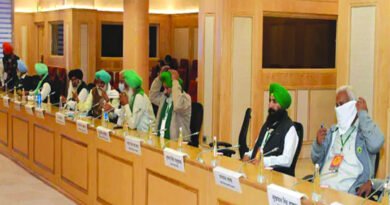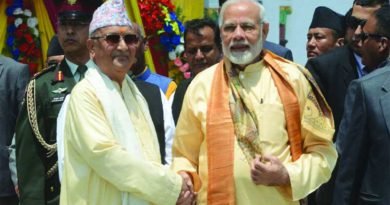Sir please mind your language!
Debate is to parliament what air is to humans. Gagging it would kill the democracy itself but certain restrains are need of the hour
Acontroversy of the sort has erupted just before the onset of the monsoon session of Parliament when the LokSabha Secretariat released a 50-page booklet that listed words like “ashamed”, “abused”, “jumlajeevi”, “tanashahi, “betrayed”, “corrupt”, “drama”, “dictator”, “hypocrisy”, “liar”, “murder”, “shame” etc. as unparliamentary expressions. Although even during the tenure of the Congress-led UPA government, many derogatory words had been considered unparliamentary and often expunged from the proceedings of the Parliament, but, now, the opposition parties considered this act of the Government as an attempt to silence them. They termed it as a “Gag order issued on MPs”, “an attempt to restrict their vocabulary” and commented that the “MPs will be left with no other option but to use sign language”. They felt that this sensitive matter should have been discussed with the opposition parties and put up in the Rules Committee where all political parties are represented.
Defending the decision, the Lok Sabha secretariat stated that putting together a list of unparliamentary words has been a tradition since 1954. The latest list merely compiles words that have been found undignified in a specific context and expunged from the records of various state assemblies and two houses of Parliament. The government argued that this list is at best only “instructive” and not “definitive”. The content of the document indicates that the context in which these words are used is far more important than the words themselves. Moreover, the onus of deciding whether a word is “unparliamentary” or not would rest on the Presiding Officer of the concerned House. The Lok Sabha speaker, Mr. Birla, came forward to clarify that no words have been banned and members are free to express their views. He emphasized the point that no one can snatch the right of a free and fair expression of the members, but, it should be as per decorum of the Parliament.
Going by the records, there is no denying the fact that many of the words uttered may look harmless, but, in a heated exchange between Parliamentarians, they may not be uttered in a virtuous tone or manner.
In democracies, illuminating debates and eloquent speeches are considered the soul of the proceedings of the Parliament. It has been a practice that the ruling party MPs highlight and defend the policies, programs, and proposed laws of the government whereas the members of the opposition, if not convinced, put forth their argument against them, both sides substantiating their respective views with the decent point of views and reasoning. The records of Parliamentary proceedings of the 50s and 60s clearly indicate the real spirit of “give and take”. The arguments put forth by the leaders like the first Prime Minister of the country, Jawahar Lal Nehru and his cabinet colleagues and the Socialist leader Ram Manohar Lohia and other distinguished MPs are a case in point. In the 70s and 80s, even though the exercise tended to become heated and noisy, the leaders had mutual respect and were polite in dealing with each other. They followed House etiquette. The debates initiated and conducted in the House by Atal Bihari Vajpayee, Chaudhary Charan Singh, Morarji Desai, Chander Shekhar and other political luminaries are the case in point.
However, the situation started deteriorating in the 90s when the debates started turning into shouting matches, hurling abusing language at each other, and using
slanderous remarks and offensive outbursts became a new normal.
At this stage, the need for expunging the unparliamentary remarks from the record of the house was felt. There is little scope for constructive discussion in the House. Initially, during the first two decades after independence, English was the primary language used for Parliamentary work in the Indian Parliament. The social composition of the Parliament started changing in the 70s. At present, 30 languages are used by Parliamentarians during the proceedings and deliberations in Parliament and many of them insist on speaking their mother tongue during crucial debates.
Shortly, the need may be felt to expunge the derogatory words in the regional languages as well. The situation started changing with the introduction of modern digital technology and the practice of broadcasting the proceedings of both houses of Parliament. In many cases due to utterance of unparliamentary remarks, the live transmission was halted by the Chair, but, the order of the Chair is often relayed by late evening to reporters, and video clips have already been circulated. Undoubtedly, we need to improve the standards of Indian political discourse. The elected representatives should realize that they represent the responsible citizens of the country and their utterances in and out of Parliament are being reported by the media and analyzed by the people. The government should consult the opposition before initiating any change which affects the freedom
of expression of the elected representatives, thereby, allowing space to enable a dialogue.
(The writer is a senior journalist and Chairman, Panwar Group of Institutions, Solan, Himachal Pradesh. The views expressed are personal.)
Source: The Pioneer




